Now, as before, India's vote at the UN was dictated by paramount national interests.
Though the Indian vote was 'neutral', its explanation was explicit in its criticism of the Russian actions.
India took back with the left hand what it had given with the right, explains Ambassador T P Sreenivasan.
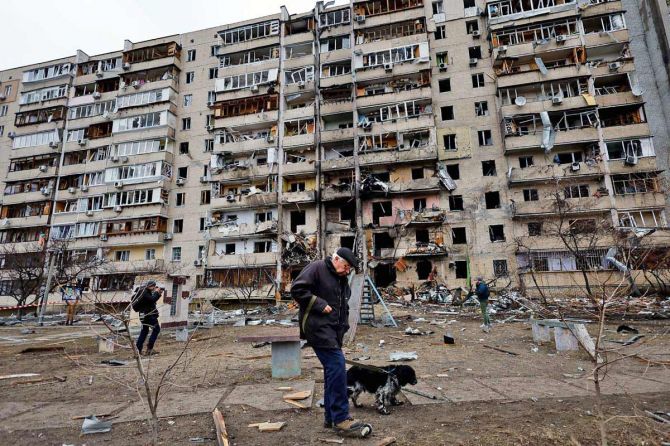
Vladimir Putin's journey from a scheming villain to a victor is perhaps the shortest in history. But it will be a pyrrhic victory.
Having harped on the vulnerabilities of Russia in the face of a menacing NATO and the US, he moved on to challenge his predecessors like Lenin, Stalin, Khrushchev and Gorbachev and put on the mantle of a saviour of the old Soviet Union and pledged to do his duty.
The US and NATO played into his hands by saying and later demonstrating that they will do nothing against him except imposing sanctions which will hurt some others even more.
When he tested the waters by entering the 'free' provinces of Ukraine, Donetsk and Lohansk, Putin faced nothing but pious declarations and tame sanctions. He is clearly a victor in the first leg of his journey to rebuilding the Soviet empire, but the road ahead is hazardous and difficult even for a man of his mettle to complete in one lifetime.
He will go down in history as the first martyr for the cause of the Soviet Renaissance.
The personality of President Putin, who is obsessed over historical injustices and restoring his nation's place at the forefront of the world, whatever the cost, lies at the heart of the present crisis.
The reluctance of the US and Europe to intervene militarily in Ukraine encouraged him to embark on an adventure with grave implications for the globe. Max Hastings, who has done a major study on the Cuban missile crisis of 1962, has stated, 'He (Putin) is not Hitler, not Stalin, not Mao. Instead, he is something much smaller, the capo of a nuclear armed gangster clique. But he has shown willingness to use terrible force to promote his own grandeur in a fashion that, unlike the Cuban missile crisis, may yet need to be met with Western arms.'
In other words, the birth pangs of a post-COVID-19 world have just begun. The unscripted story of the future is yet to be played out.
The massive deployment of Russian forces on its border with Ukraine in November 2021 was the first sign of the present disaster, though it can be traced back to 2014, when Russia annexed Crimea on the ground that it was a Russian gift to Ukraine in the first place.
Putin insisted that he had no intention to invade Ukraine, stating that the redline for any action would come only if Ukraine joined NATO. Except President Biden, most people believed that an attack was an empty threat and the US and NATO even indicated that no military action would be taken even if an attack took place.
The threat of sanctions did not deter Putin from launching an attack, first by recognising the independent States of Donetsk and Luhansk and entering the region on a peacekeeping mission and then, after his historic declaration of his larger intentions, launching 'special military operations' with the object of demilitarising Ukraine, but not occupying it.
Putin's credibility was completely lost and he is currently entangled in a major unequal war with tiny Ukraine, without any sign of an immediate victory because of the heroic resistance of President Volodymyr Zelenskyy, although it is a matter of time before Ukraine is subdued and brought under a Russian puppet regime in Ukraine.
But judging from the resistance so far, a long guerrilla war appears to be in the offing.
The international reaction to the events is one of shock surprise and condemnation, but, as expected, a strong draft resolution of the United Nations Security Council was vetoed by Russia, with 11 positive votes and abstentions by China, India and the UAE.
Ironically, China and India appeared to be on the same side, despite vast differences between them on their world views.
For India, it was a matter of balancing two friends, while for China, it was a gesture of solidarity with its new ally.
But though the Indian vote was 'neutral', its explanation was explicit in its criticism of the Russian actions. India took back with the left hand what it had given with the right.
Though India did not mention Russia, it stated that India is deeply disturbed by the recent turn of developments in Ukraine. It reiterated its appeal for cessation of violence.
'No solution can be arrived at the cost of human lives,' said Ambassador T S Tirumurti, India's permanent representative to the UN. He also flagged India's core concern about the safety of about 16,000 Indian nationals stranded in Ukraine.
India also touched upon the fundamental principle of respect for territorial integrity enshrined in the UN Charter. Most significantly, India regretted that the path of diplomacy was given up, a clear indication of India's displeasure over the Russian action when the Indian minister of external affairs was in Paris to help the diplomatic process.
'It is a matter of regret that the path of diplomacy was given up. We must return to it,' said India, citing it as an important reason for its abstention.
The history of the Indian vote on Afghanistan in 1979 appeared to repeat itself, in spite of the many changes that had taken place in the world and in India's own relationships, including the formation of the Quad.
But now, as before, India's vote was dictated by paramount national interests. Interestingly, the US, Russia and Ukraine appeared to grudgingly accept the Indian vote.
The emergence of a China-Russia-Iran-Pakistan axis is the gravest challenge that India is likely to face as a result of the Russian actions. As was demonstrated in Melbourne, Russia joining the Chinese battle against an 'Asian NATO' has altered the status and mandate of the Quad as a bulwark against Chinese expansionism and directed it towards cooperation among the four counties for fighting the pandemic, combatting climate change and promoting technologies and establishing new supply chains.
India has become more vulnerable to terrorism and tensions on our borders with China and Pakistan. Deft diplomacy, military preparedness and self-reliant economic development have become more important than ever before.
Ambassador T P Sreenivasan, Indian Foreign Service 1967, served as a diplomat both in Moscow and Washington, DC.
A long time Rediff.com columnist, you can read his earlier columns here.






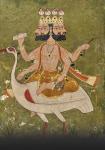

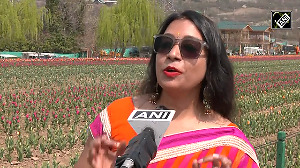
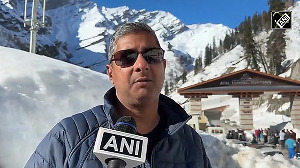
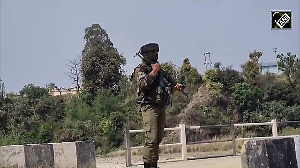
 © 2025
© 2025